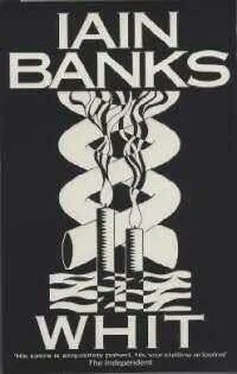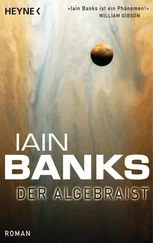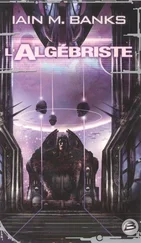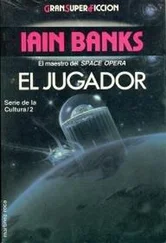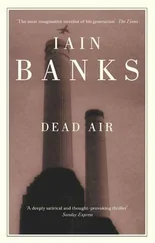'Suppose. Yeah. Shit. Essex. Shit.'
'Let's make tracks!' I said, jumping off my stool and unable to resist nudging Zeb in the elbow. He looked startled and stared concernedly at his elbow. Boz slurped on his coffee.
* * *
We took a bus to Liverpool Street station and a train from there to Badleigh. Not having anticipated a journey outside the capital, I had not brought my Sitting Board, so Zeb and I stood in the aisle by Boz's seat. Boz read a paper called the Mirror . I whiled away the time for Zeb by reading him parts of passages from the Orthography and asking him to recall what words came next. He was shockingly poor at this, though that may have been because completing the pieces of text would have required talking in sentences of more than one word and he had obviously quite got out of that particular habit.
At one point, when Boz had gone to the toilet for 'a quick toke' (which I took to be Jamaican slang for a bowel movement, given the amount of time he was away), I asked Zeb, 'Why does Boz wear his cap back to front?'
Zeb looked at me as though I had asked him why Boz wore his shoes on his feet. 'It's. Like. Baseball cap,' he said scornfully.
I thought about this. 'Ah,' I said, really none the wiser.
The city went on and on; every time I thought we had finally left the metropolis behind, the patch of greenery I'd based this assumption on would turn out to be a park or an area of waste ground. Eventually, however, while I was engrossed in the Orthography (Zeb had gone off to the toilet some time earlier) the city gave way to countryside, and when I next looked up we were sliding through a level landscape of fields and narrow lanes, dotted with buildings, villages and towns, all sliding quickly past under a sky of small clouds. I felt some relief at having left the vast busyness of the city behind, as though my clutter-smothered soul was finally drawing something like a clear and unobstructed breath again.
Badleigh proved to be a flat town with a split personality: a village-like old town with low, erratically streeted buildings to one side of the railway line, and a cubical landscape of medium-rise brick and concrete on the other. One building I thought at first must still be under construction proved on closer inspection - as the train slowed and we got ready to get off- to be a multi-layered car park.
* * *
'He says it's three miles, I-sis,' Boz told us, after talking to the man in the ticket office.
'Good!' I said. 'A stroll.'
'No way, man,' Boz said, grinning from behind dark sunglasses. 'I call us a taxi.' He loped off to the exit.
'For a mere three miles?' I said, aghast, to Zeb.
'City,' Zeb said, shrugging, then appeared to think. His face brightened briefly. 'Lanes,' he said, with a hint of pride, I thought. He nodded happily. 'Lanes,' he said again, and sounded pleased with himself.
'Lanes?' I asked.
'Lanes. Narrow. No pavements. Cars. Speeding. Walking. Dangerous.' He shrugged. 'Lanes.' He turned and walked to the doors, beyond which Boz could be seen getting into a car.
'Lanes,' I muttered to myself, feeling obliged to join my two comrades.
* * *
'Well, I'm sorry, dear, but you can't kneel on the seats.'
'But I could put the belt round me!' I said, struggling to pull the restraining seat-belt out far enough.
'That's not the point though, love, is it? The regulations say that my fares have to be seated. If you're kneeling you're not seated, are you?'
'Could I sit on the floor?' I asked.
'No, I don't think so.'
'But I'd be seated!'
'Yeah, but not on a seat; you wouldn't be seated on a seat, know what I mean? There something wrong with her, mate?'
'The child's eccentric, man; she's from Scot-lan'. I'm sorry. Hey, I-sis; you got the man here thinkin' he got some sort of lunatic in the back of his car here-'
'Well, I meant like piles or sumfing, actually…'
'-he goin' to be askin' us to get out an' walk if you don't settle down. Sorry, man; you just start the meter rollin' now; we get this sorted.'
'Look,' I said, 'haven't you got some sort of board or something hard I could sit on?'
The taxi driver looked round at me. He was a hunched little chap with alarmingly thick glasses. 'Sumfing hard to sit on?' he said, then glanced at Boz. 'See; told you.'
He reached down the side of his seat and handed me a large book. 'Here we go; the A to Z; will that do?'
I tested it; the battered hardback flexed a little. 'It will suffice. Thank you, sir.'
'All part of the service,' he said, turning back. 'Nuffink to be embarrassed about. Had the same problem myself once, 'cept you don't usually see people young as you wif it, do you?'
'No,' I agreed as we started off and I belted myself in, too flustered to follow what he was talking about.
The car smelled powerfully of a cheap, sharp perfume. We passed the three miles to Gittering being regaled with graphic tales of our driver's multiple hospitalisations and various operations.
* * *
'Attractive. Ranch style,' Zeb said, staring with admiration at the large house beyond the gate separating road from driveway. At the far end of the drive, La Mancha was a white bungalow complex with roofs at various angles and large windows backed by closed curtains. The gardens looked well tended, although somebody had abandoned a gaily painted horsecart in the centre of the lawn, there was a new-looking plough standing on a strip of grass across the drive from the lawn, and a brightly decorated cartwheel lay against the side of the house. It looked terribly clean and tidy to be a working farm.
There were various signs on the shoulder-high white wooden gate; one said, 'La Mancha', another said, 'Private Property -Keep Out', and another said, 'Beware Of The Dog', and had a colour picture of the head of a very large dog on it, just in case the reader was under any illusion concerning what dogs looked like.
'This is it,' I said, looking through the bars of the gate for a slide or staple that would allow us to open it.
'Whoa,' Zeb said, tapping the 'Beware Of The Dog' sign.
I slid the gate's bolt and started to push it open. 'What?' I said. 'Oh, don't worry about that; they probably don't have any dogs. Besides,' I told my two uncertain-looking companions as I held the gate open for them, 'I have a way with animals, especially dogs.' I closed the gate after us, then took the lead and headed for the house.
We were halfway down the drive when we heard the deep-throated barking. We all stopped. A huge hound came running round the side of the building, looking very much like the one on the sign at the gate; it was brown-black, its head was huge and there was spittle already flying from its jowls as it came powering towards us. It looked about the size of a foal.
'Jeez!'
'Run! I-sis; run !'
I glanced back to see Zeb and Boz - who was still looking back at me - heading smartly for the gate.
I felt calm. I had faith. And I really did have a way with animals. I thought for a moment, weighing up the situation. Behind me, the dog barked again; it sounded like a dinosaur with a bad cough. I started to run.
* * *
A way with animals does run in our family; when my Grandfather persuaded Mr McIlone to become his first apostle and moved in to the farm of Luskentyre, he discovered a gift for working with cattle and horses; he was always able to calm them when they were distressed and often able to tell what was wrong with them even before the vet arrived.
My father inherited the same talent, and was largely in charge of the sheep and cows at High Easter Offerance even before he left school, though our Founder thought that animal husbandry was beneath an Elect. Still, Salvador could refuse his son nothing, a trait that seems to have been made transferable to other Elects and become an article of faith, I'm glad to say (certainly I have benefited from it), and so my father was allowed to indulge his vocation for farming to his soul's content.
Читать дальше
